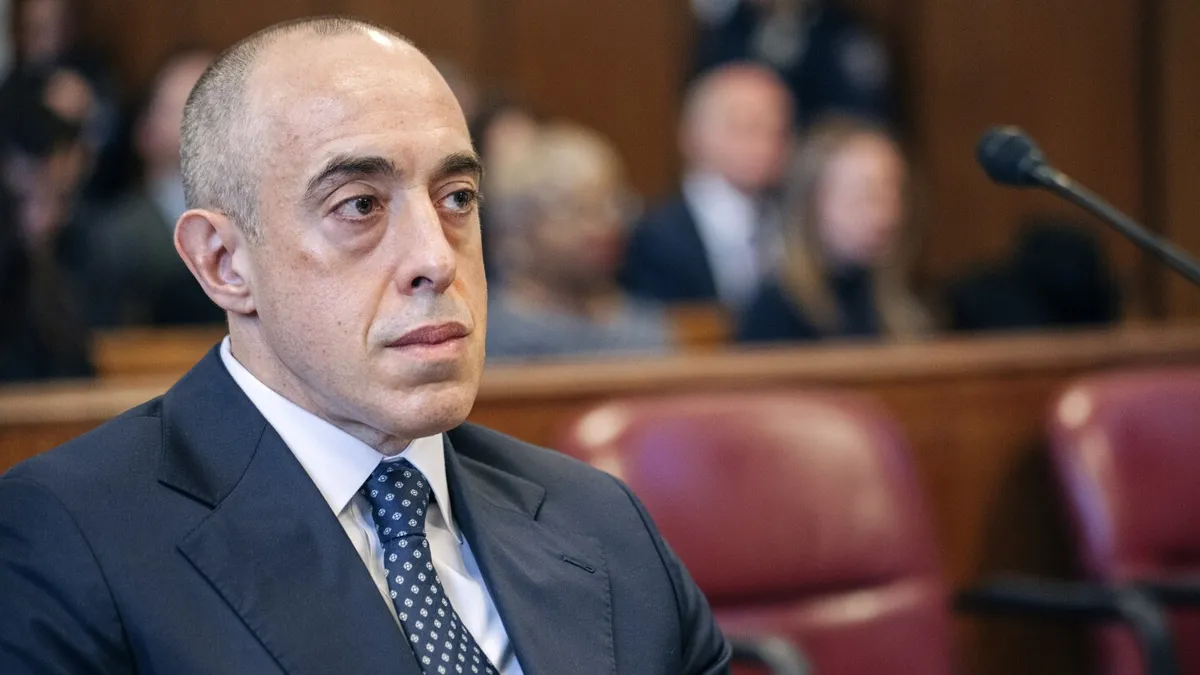
The U.S. Senate is poised to hold a crucial vote as early as Tuesday evening regarding the confirmation of Emil Bove, a former lawyer for Donald Trump, for a lifetime position as a federal appeals court judge. This nomination faces significant opposition from Democrats, particularly in light of a recent whistleblower complaint that has emerged against Bove. The whistleblower provided an audio recording that reportedly contradicts some of Bove's statements made during his confirmation hearing last month.
According to sources familiar with the audio, this recording features Bove discussing his management of the dismissed corruption case involving New York City Mayor Eric Adams. The conversation took place during a private video conference call at the Department of Justice in February. The details of this recording were first reported by the Washington Post, and the whistleblower has yet to release the recording publicly, prompting discussions behind closed doors.
In response to the allegations, Senate Democrats are actively working to delay Bove’s confirmation, hoping to sway additional Republican senators to oppose his nomination. Earlier this month, a different whistleblower—a dismissed department lawyer—alleged that Bove suggested the Trump administration may need to disregard judicial orders, a claim Bove has vehemently denied. Despite these serious allegations, Senate Republicans have largely rallied behind Bove, and the majority of them voted to advance his nomination last week.
Emil Bove, a former federal prosecutor in the Southern District of New York, was part of Trump’s legal team during the controversial New York hush money trial and defended Trump in two federal criminal cases initiated by the Justice Department. If the Senate confirms him, Bove will serve on the 3rd U.S. Circuit Court of Appeals, which oversees cases from Delaware, New Jersey, and Pennsylvania. Bove has been a key figure in the decision to dismiss the case against Mayor Adams and has also led efforts to investigate department officials involved in prosecuting individuals connected to the January 6, 2021, Capitol attack.
During his confirmation hearing, Bove faced pointed questions regarding his leadership and decision-making at the Justice Department. He acknowledged that some of his actions have sparked controversy, asserting that he has been misrepresented as Trump’s “henchman” and “enforcer.” A significant focus of the hearing was a February 14 call with Justice Department lawyers, where Bove instructed them to quickly decide on filing a motion to dismiss the case against Adams. This directive led to a wave of resignations among prosecutors who disagreed with the dismissal.
When questioned about the specifics of that call, Bove denied making certain statements attributed to him in the call's transcript, raising further concerns among senators and adding to the scrutiny of his nomination.
Senate Judiciary Committee Chairman Chuck Grassley, a Republican, expressed confidence in Bove's abilities as a “diligent, capable and fair jurist,” despite the swirling accusations against him. Grassley criticized the “vicious rhetoric” aimed at Bove, suggesting that the level of criticism has crossed a line. Meanwhile, Democratic senators have staged walkouts during committee votes on Bove’s nomination and have called for additional votes to delay the process.
Democratic Senators Cory Booker from New Jersey and Adam Schiff from California have urged the Justice Department’s inspector general to clarify whether Bove is under investigation, emphasizing the necessity for senators to have a complete understanding of Bove’s actions before casting their votes.
This whistleblower complaint is not the first to target Bove. A former Justice Department lawyer was dismissed after revealing that Bove had reportedly suggested that the administration might need to “ignore” judicial commands regarding deportations. Bove has stated he has no recollection of making such comments. Senator Dick Durbin, the leading Democrat on the Judiciary Committee, accused Bove of misusing his position to “weaponize” the Department of Justice against Trump’s political adversaries.
Only two Republican senators—Lisa Murkowski of Alaska and Susan Collins of Maine—voted against advancing Bove’s nomination last week, with Collins citing concerns over Bove’s political affiliations and actions that may compromise his impartiality as a judge. As the Senate prepares for the vote, the implications of Bove’s potential confirmation continue to provoke intense debate across the political spectrum.